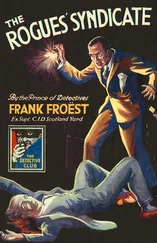'Because their DNA stores knowledge?' asked Li.
'Right. That's the crucial difference. Humans aren't endowed with genetic memory. For our culture to survive, we need words, written accounts and pictures. We can't transmit experience directly. When our body dies, our mind goes with it. We talk about not forgetting the lessons of the past but we're kidding ourselves. To forget something you have to be able to remember it. None of us can remember the experience of earlier generations. We can record and refer to other people's memories, but it doesn't alter the fact that we weren't there . Every newborn baby starts from scratch. Each of us has to touch the stove to find out that it's hot. Things are very different for the yrr. One cell absorbs information, then divides into two – it duplicates its genome, complete with all the information stored on it. It's like us being able to duplicate our brain and all our memories with it. New cells don't inherit abstract knowledge – they get real experience, as though they'd been there themselves. Ever since the very first yrr came into being, they've had collective memory.' Johanson turned to Li. 'So, do you see what we're up against?'
Li nodded slowly. 'The only way we could rob the yrr of their knowledge is by destroying entire collectives.'
'Entire collectives probably wouldn't be enough: you'd have to kill every last one of them,' said Johanson. 'And there are plenty of reasons why you can't do that. For one thing, we don't know how dense their networks are. Their cellular chains might stretch hundreds of kilometres. We're outnumbered. And they're not like humans – they don't just live in the present. They don't need statistics, averages or any other intellectual crutch. Taken together they're their own statistics, the sum of all parts, their own history. They're able to survey developments spanning thousands of years. We don't even manage to act for the good of our children and grandchildren. We repress memory. The yrr compare, analyse, diagnose, predict and act on the strength of their ever-present memory. Nothing ever gets lost, not even the smallest innovation. Everything feeds into the development of new strategies and ideas. It's an infinite process of selection towards the perfect solution. They compare back, modify, refine, learn from their mistakes, adapt, make their projections – and act.'
'Cold-blooded little beasts,' said Vanderbilt.
'Do you think so?' Li shook her head. 'I admire them. Within minutes they produce strategies that would keep us busy for years. Even just knowing exactly what – won't work . Then knowing it because it's part of your memory, because you were the one who messed up in the first place – even though you weren't physically present…'
'And that's why the yrr probably get along better in their habitat than we do in ours,' said Johanson. 'For the yrr every thought process is collective and embedded in the genes. They inhabit every era simultaneously. Humans don't have a clear view of the past and they don't pay attention to the future. Our whole existence centers on the individual, the here and now. We're too busy pursuing our own personal goals to worry about higher knowledge. We know we can't exist beyond death, so we try to leave our legacy in manifestos, books and music. We're intent on making sure our names aren't forgotten. We try to leave a record of ourselves to be passed on, misinterpreted, falsified and used for ideological purposes long after we're dead. We're so obsessed with assuring our own perpetuity that our goals seldom coincide with what would be good for humankind. Our minds champion the aesthetic, the individual, the intellectual and the abstract. We're determined not to be animals. On the one hand our body is our temple, but on the other we despise it for being mere machinery. We've become accustomed to valuing mind over body. We feel nothing but contempt for the factors relating to our physical survival.'
'But for the yrr this division doesn't exist,' Li mused. For some reason the thought seemed to please her. 'Body is mind, and mind is body. No yrr would ever do anything that runs counter to the interests of the collective. Survival matters for the species, not the individual, and action is always a collective decision. Fantastic! The yrr don't give prizes for good ideas. Being able to take part in their implementation is all the fame a yrr could wish for. The question is, do the individual amoebas have an individual consciousness?'
'Not in the way we know it,' said Anawak. I'm not sure you can talk about individual consciousness in relation to single cells. But the amoebas are certainly creative on an individual basis. They're sensors that turn experience into something they can use, before feeding it into the collective. A thought is probably only taken into consideration if the impulse behind it is strong enough, that's to say if enough yrr are trying to introduce it into the collective at the same time. Each thought is weighed up against a range of others, and the fittest survives.'
'Just like evolution,' nodded Weaver. 'Thinking by natural selection.'
'That's some enemy!' Li seemed full of admiration. 'Zero loss of information and no pointless vanities. We never see more than part of the whole, while they see everything throughout time and space.'
'And that's why we're destroying our planet,' said Crowe. 'We can't see what we're doing. They must know that – which means they know we don't have genetic memory.'
'Right. It all adds up. No wonder they don't want to negotiate. They could make a deal with you or me, but what if we die tomorrow? Then who would they deal with? Having genetic memory would save us from our own stupidity, but it's not the way we're made. Trying to get along with humans is a pipedream. The yrr have seen that. It's part of their collective knowledge and it's the reason they've decided to mobilise against us.'
'Once they learn something, no one can take it away from them,' said Oliviera. 'In a yrr-collective everyone knows everything. They don't need think tanks, scientists, generals or leaders. You can kill as many yrr as you like – but so long as some survive, their collective knowledge lives on too.'
'Just a minute.' Li turned to her. 'Didn't you say that there might he some queen-yrr?'
'Yes. Even if collective knowledge is part of each yrr, collective action might he initiated centrally. My guess is that queen-yrr exist.'
'As single cells?'
'Well, they'd have to share the same biochemistry as the aggregated jelly, so it's likely that they're single cells. But they're highly organised. The only way we're ever going to get close to them is through communication.'
'But all they send us are cryptic messages!' said Vanderbilt. 'They sent us a picture of prehistoric Earth. Why? What are they trying to tell us?'
'Everything,' said Crowe.
'Could you be a little more specific?'
'They're telling us is that this is their planet – which they've been ruling for a hundred and eighty million years, maybe more. They're telling us they've got genetic memory, the magnetic field is their compass, and they're everywhere where there's water. They want us to know that we're in the here and now, whereas they're everywhere and forever. Those are the facts. It's all in the message, and it says a lot.'
Vanderbilt scratched his belly. 'So what do we tell them?'
'They've decided they want to destroy us. We're not going to defeat that logic by arguing that we want to survive. Our only chance lies in trying to show them that we acknowledge their primacy…'
'The primacy of amoebas?'
'. . . and in persuading them that we no longer pose a threat.'
'But we are a threat,' said Weaver.
'She's right,' said Johanson. 'Empty promises won't help. We need to give them a signal that we're withdrawing from their world. We need to stop contaminating the seas with chemical and noise pollution, and we need to do it fast enough to make them wonder whether they could live with us, after all.'
Читать дальше












